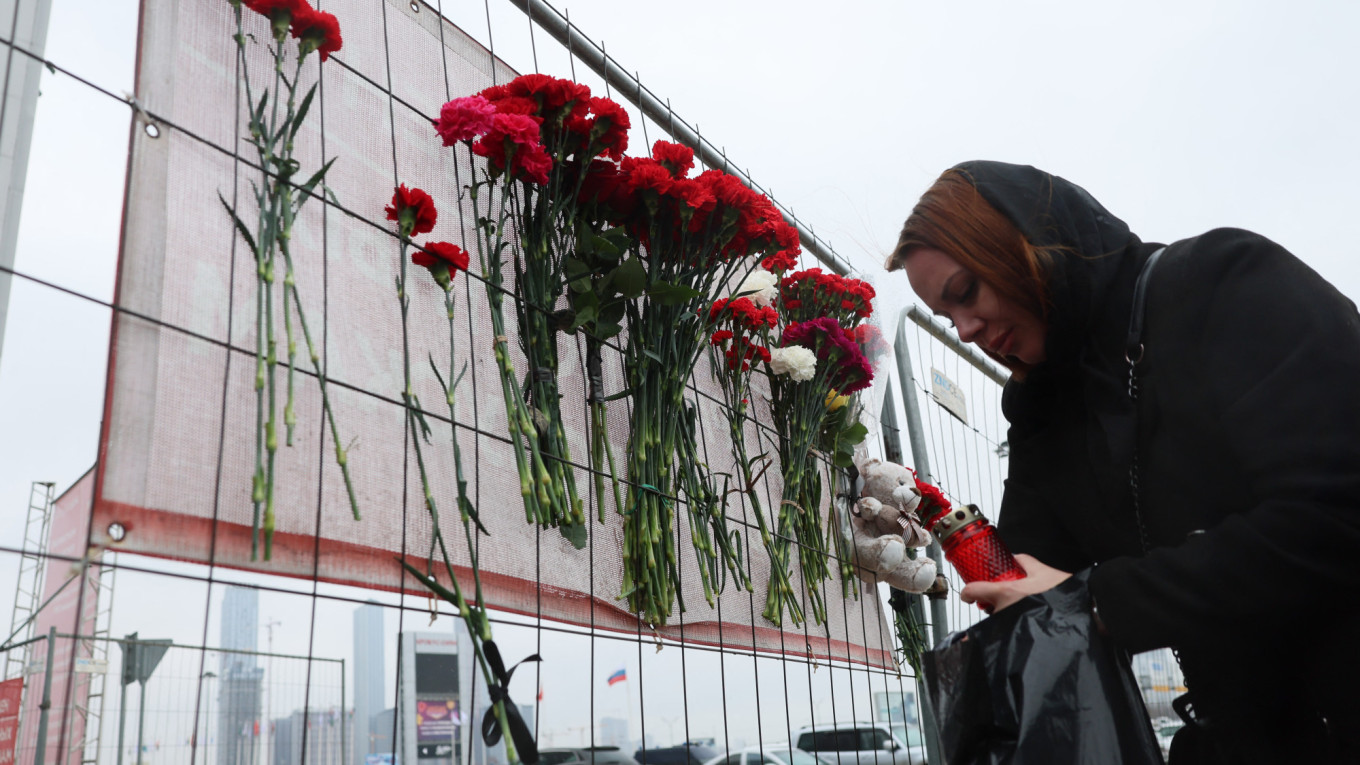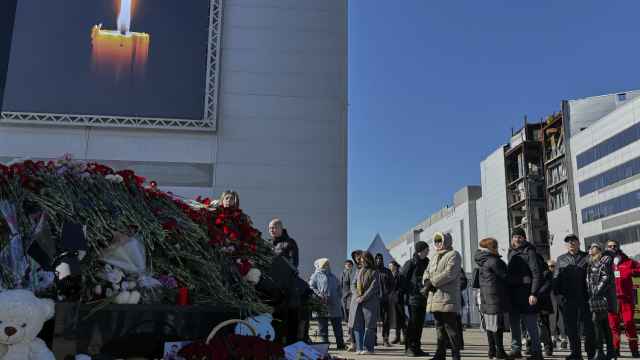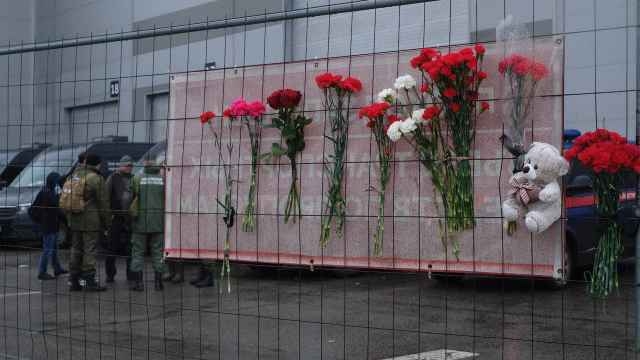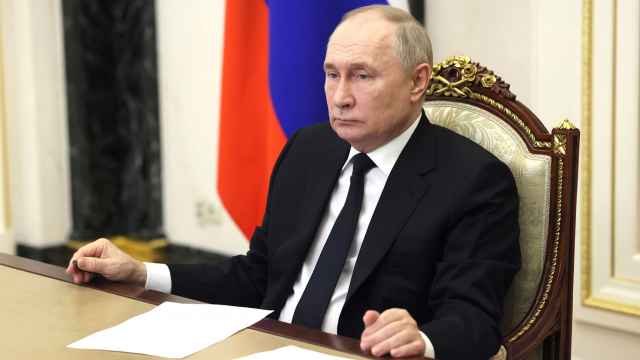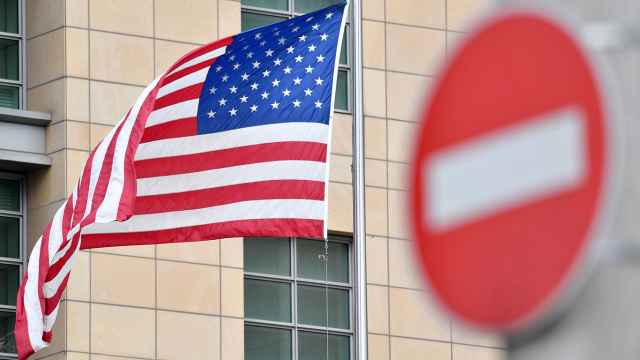Russian President Vladimir Putin on Saturday vowed to punish those behind a "barbaric terrorist attack" on a Moscow concert hall that killed at least 133, saying Russia had arrested four gunmen who were trying to flee to Ukraine.
Kyiv has strongly denied any connection, and Putin made no reference to claims of responsibility by the Islamic State in his first public remarks on the attack.
At least 133 people were killed when camouflaged gunmen stormed the Crocus City Hall in Moscow's northern suburb of Krasnogorsk and set fire to the building on Friday evening.
The jihadist group has claimed the attack, writing Saturday on a Telegram channel that it was "carried out by four IS fighters armed with machine guns, a pistol, knives and firebombs," as part of "the raging war" with "countries fighting Islam."
It is the deadliest attack on Russia in almost two decades and the deadliest in Europe to have been claimed by the Islamic State.
Russian officials expect the death toll to rise further, with more than 100 injured in hospital.
"Terrorists, murderers, non-humans...have only one unenviable fate: retribution and oblivion," Putin said in a televised address to the nation on Saturday.
'Barbaric'
Calling the attack a "barbaric, terrorist act," Putin said "all four direct perpetrators...all those who shot and killed people, have been found and detained."
"They tried to escape and were travelling towards Ukraine, where, according to preliminary data, a window was prepared for them on the Ukrainian side to cross the state border," he added.
Putin also compared the attackers to "Nazis" and said the attack was an "atrocity, a strike against Russia and our people."
He named Sunday a day of national mourning.
Russia arrested 11 people in connection with the attack on Saturday, the FSB security service said.
"All the perpetrators, organizers and those who ordered this crime will be justly and inevitably punished," Putin said.
The FSB said earlier Saturday that the assailants had "contacts" in Ukraine, without providing further details.
Kyiv, facing a Russian military offensive for the past two years, said it had "nothing to do" with the attack, presidential aide Mykhailo Podolyak said in a statement.
At least 133 killed
Russia's Investigative Committee, which probes major crimes, said rescue workers were still working on site on Saturday, pulling bodies from the burnt-out building.
"The emergency services have found more bodies while clearing the debris," it said in a statement on Telegram.
"The number of people killed in the terrorist attack has risen to 133. Search operations continue."
The governor of the Moscow region said rescuers would continue to scour the site for "several days."
Some 107 people were still in hospital, many in a critical condition, according to Russia's Emergency Situations Ministry.
The Islamic State group claimed responsibility on Friday, saying its fighters attacked "a large gathering" on Moscow's outskirts and "retreated to their bases safely".
Some witnesses filmed the gunmen from the upper floors as they walked through the stalls shooting people, footage shared on social media showed.
Then "the terrorists used a flammable liquid to set fire to the concert hall's premises, where spectators were located, including wounded," the Investigative Committee said.
Investigators said people died both from gunshot wounds and smoke inhalation after a fire engulfed the 6,000-seater venue.
Flames quickly spread through the venue on Friday, with screaming concert-goers rushing to emergency exits.
Investigators also said they would issue an award to a man who had jumped on one of the attackers while he was shooting at the concert-goers, "immobilizing" the gunman and "saving the lives of people around him."
Blood queues
Putin did not address the Islamic State's claim of responsibility in his first public remarks on Saturday, more than 18 hours after the start of the attack.
The head of the state-run RT media outlet, Margarita Simonyan, on Saturday posted two videos claiming to be interrogations of two handcuffed suspects, who both admitted to the attack but did not say who organized it.
Russian Telegram channels — including Baza, which is close to the security services — and a lawmaker said some of the suspects were from Tajikistan, a country in Central Asia.
Tajikistan's Foreign Ministry told Russia's TASS news agency that authorities were "in close contact" with Moscow about the "supposed participation of the country's citizens in the terrorist attack."
In Moscow, residents stood in long lines in the rain to donate blood for those hospitalized, according to videos posted by state media outlets.
Memorial posters featuring a single candle replaced some advertising billboards, the RIA Novosti state agency reported.
Major events were cancelled across the country, including a friendly football match between Russia and Paraguay set to take place in Moscow on Monday.
Statements of condemnation from world leaders continued to roll in.
U.S. warning dismissed
Russia's powerful intelligence services were also in the spotlight in the wake of the attack.
Just three days before, Putin had publicly dismissed Western warnings of an imminent attack in Moscow as propaganda designed to scare Russian citizens.
On 7 March, the U.S. Embassy in Russia had issued a security alert saying it was "monitoring reports that extremists have imminent plans to target large gatherings in Moscow, to include concerts."
Washington on Friday said it had directly warned Russian authorities about a "planned terrorist attack" possibly targeting "large gatherings" in Moscow.
But speaking to FSB chiefs last Tuesday, Putin said: "Recent provocative statements by a number of official Westerns structures about the possibility of terrorist attacks in Russia...resembles outright blackmail and an intention to intimidate and destabilize our society."
A Message from The Moscow Times:
Dear readers,
We are facing unprecedented challenges. Russia's Prosecutor General's Office has designated The Moscow Times as an "undesirable" organization, criminalizing our work and putting our staff at risk of prosecution. This follows our earlier unjust labeling as a "foreign agent."
These actions are direct attempts to silence independent journalism in Russia. The authorities claim our work "discredits the decisions of the Russian leadership." We see things differently: we strive to provide accurate, unbiased reporting on Russia.
We, the journalists of The Moscow Times, refuse to be silenced. But to continue our work, we need your help.
Your support, no matter how small, makes a world of difference. If you can, please support us monthly starting from just $2. It's quick to set up, and every contribution makes a significant impact.
By supporting The Moscow Times, you're defending open, independent journalism in the face of repression. Thank you for standing with us.
Remind me later.


